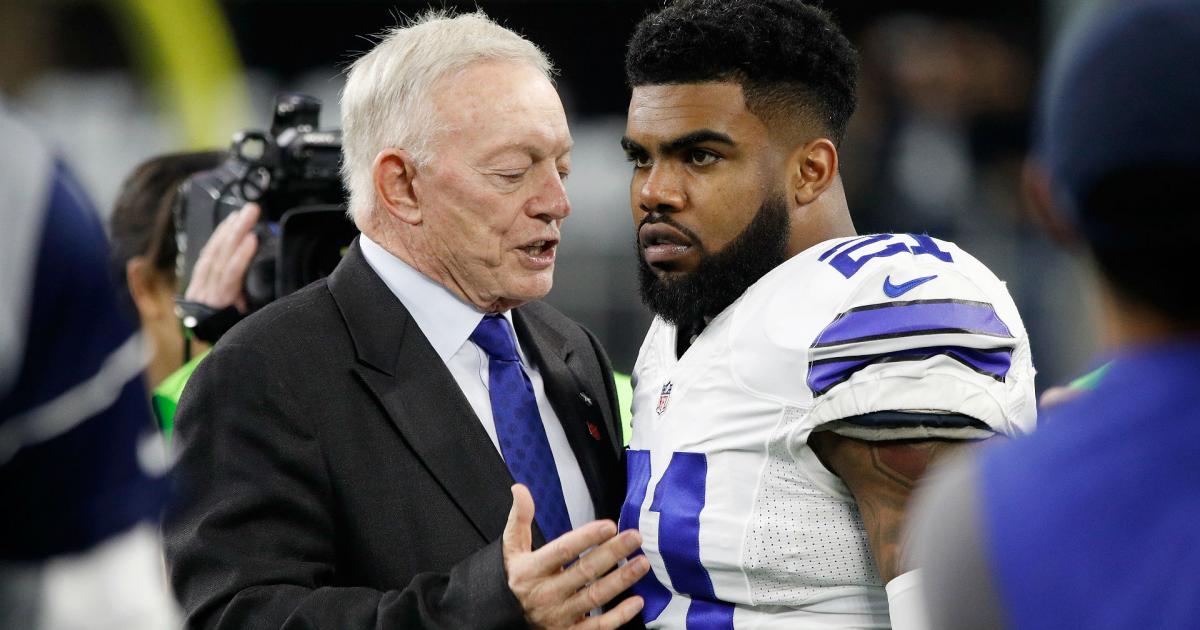During weekly conference calls zeke – During weekly conference calls, Zeke plays a pivotal role in shaping team dynamics and ensuring effective participation. As a key contributor, his presence and active involvement influence the team’s performance and foster a collaborative environment.
Zeke’s contributions extend beyond technical expertise, as he actively participates in discussions, shares insights, and facilitates decision-making processes. His ability to resolve conflicts and promote open communication creates a positive and productive atmosphere within the team.
Overview of Zeke’s Role in Weekly Conference Calls
Zeke plays a multifaceted role during the weekly conference calls, contributing to the team’s progress and decision-making. His responsibilities encompass various aspects of the meeting, including:
Leading Discussions
Zeke effectively guides the team through agenda items, ensuring that discussions are focused, productive, and aligned with the meeting’s objectives. He actively listens to participants’ perspectives, facilitates brainstorming sessions, and summarizes key points to maintain clarity and momentum.
Providing Updates
Zeke regularly provides updates on ongoing projects, recent developments, and upcoming milestones. His concise and informative reports keep the team informed, enabling them to make informed decisions and adjust their strategies as necessary.
Facilitating Problem-Solving
When the team encounters challenges or obstacles, Zeke actively engages in problem-solving discussions. He encourages diverse perspectives, promotes collaboration, and guides the team towards identifying viable solutions that align with the company’s goals.
Managing Action Items
Zeke diligently tracks action items arising from the conference calls. He assigns responsibilities, sets deadlines, and monitors progress to ensure that tasks are completed efficiently and effectively.
Zeke’s Impact on Team Dynamics

Zeke’s presence and participation in weekly conference calls have a profound impact on team dynamics. His ability to foster collaboration and resolve conflicts effectively contributes to the overall success of the team.
One of Zeke’s strengths is his ability to create a positive and inclusive environment during the calls. He actively encourages participation from all team members, ensuring that everyone’s perspectives are heard and valued. This fosters a sense of camaraderie and respect among the team members, which in turn enhances collaboration and productivity.
Fostering Collaboration
Zeke employs several strategies to foster collaboration during the calls. He frequently uses icebreakers to encourage team members to connect on a personal level, which helps to build rapport and trust. Additionally, he assigns specific roles to each team member, ensuring that everyone has a clear understanding of their responsibilities and how they contribute to the overall success of the team.
Moreover, Zeke promotes active listening and encourages team members to share their ideas and experiences. He creates a safe space where team members feel comfortable expressing their opinions and challenging the status quo. This open and collaborative environment fosters innovation and problem-solving, leading to better decision-making.
Resolving Conflicts
Zeke also plays a crucial role in resolving conflicts that may arise during the calls. He approaches conflicts with empathy and objectivity, seeking to understand the perspectives of all involved parties. He facilitates discussions in a constructive manner, focusing on finding common ground and developing solutions that benefit the entire team.
Zeke’s conflict resolution skills are particularly valuable when dealing with disagreements or misunderstandings between team members. He uses his emotional intelligence to de-escalate tensions and guide the team towards a positive resolution. By addressing conflicts promptly and effectively, Zeke helps to maintain a harmonious and productive team environment.
Strategies for Effective Participation by Zeke

Effective participation in weekly conference calls requires strategic planning and active engagement. Zeke has developed a comprehensive approach to ensure his contributions are meaningful and impactful.
Techniques, Benefits, and Examples
| Technique | Benefits | Examples |
|---|---|---|
| Active Listening | Enhanced understanding, improved focus, and increased engagement | Paying undivided attention, asking clarifying questions, and summarizing key points |
| Preparation and Research | Informed participation, relevant contributions, and increased credibility | Reviewing agenda items in advance, gathering data, and consulting with colleagues |
| Clear and Concise Communication | Effective message delivery, improved understanding, and increased impact | Using precise language, avoiding jargon, and structuring thoughts logically |
| Time Management | Efficient use of call time, respectful of others, and maintaining focus | Adhering to time limits, allowing others to speak, and using breaks effectively |
| Collaboration and Idea Sharing | Leveraging collective knowledge, fostering innovation, and building relationships | Actively listening to others, contributing ideas, and seeking feedback |
Areas for Improvement
To further enhance Zeke’s participation in the weekly conference calls, there are certain areas that could benefit from improvement. These areas include active listening, preparation, and effective communication.
By focusing on these aspects, Zeke can increase his overall contribution and positively impact the team’s dynamics during the calls.
Active Listening
- Pay undivided attention to speakers:Avoid distractions and maintain eye contact (if using video conferencing) to demonstrate engagement.
- Ask clarifying questions:Seek clarification on points that require further understanding, showing active involvement and a desire to contribute.
- Summarize key points:Periodically summarize what has been discussed to ensure comprehension and retention of information.
Preparation
- Review agenda and materials:Familiarize yourself with the topics to be covered before the call, enabling informed participation.
- Identify key discussion points:Determine which aspects of the agenda are most relevant to your expertise or responsibilities, and prepare accordingly.
- Gather necessary data and examples:Support your points with relevant data, examples, or case studies to strengthen your arguments.
Effective Communication
- Speak clearly and concisely:Deliver your points in a well-organized and succinct manner, ensuring that your message is easily understood.
- Be respectful and inclusive:Maintain a respectful tone, listen attentively to others, and avoid interrupting to foster a positive and collaborative environment.
- Use visual aids when appropriate:Share slides, charts, or other visual aids to enhance clarity and engagement.
Impact of Zeke’s Absence on the Calls

Zeke’s absence from the weekly conference calls can potentially impact the team’s performance in several ways.
First, Zeke’s absence may lead to a loss of institutional knowledge and expertise. Zeke has been a key member of the team for many years, and he has a wealth of knowledge and experience that is essential to the team’s success.
If Zeke is absent, the team may have difficulty accessing this knowledge and expertise, which could lead to mistakes or delays in decision-making.
Challenges and Contingency Plans
In addition to the loss of institutional knowledge and expertise, Zeke’s absence may also lead to a decrease in team morale. Zeke is a valued member of the team, and his absence may be felt by his colleagues. This could lead to a decrease in motivation and productivity, which could further impact the team’s performance.
To mitigate the impact of Zeke’s absence, the team should develop a contingency plan. This plan should include steps for accessing Zeke’s knowledge and expertise in his absence, as well as strategies for maintaining team morale. The team should also consider assigning additional responsibilities to other team members to ensure that Zeke’s work is covered in his absence.
Evaluation of Zeke’s Performance: During Weekly Conference Calls Zeke

To assess Zeke’s contributions and areas for improvement during weekly conference calls, a comprehensive evaluation framework is crucial. This framework should encompass key performance indicators (KPIs), assessment methods, and target outcomes to provide a structured and objective evaluation process.
The following table summarizes the evaluation criteria:
Evaluation Criteria
| KPI | Assessment Method | Target Outcome |
|---|---|---|
| Contribution to Discussions | Observations, Peer Feedback | Active participation, insightful contributions |
| Preparation and Knowledge | Self-Assessment, Manager Review | Thorough preparation, informed perspectives |
| Communication Skills | Observations, 360-Degree Feedback | Clear and concise communication, effective listening |
| Teamwork and Collaboration | Peer Evaluations, Manager Observations | Collaborative spirit, support to team members |
| Problem-Solving and Decision-Making | Case Studies, Simulations | Analytical thinking, sound decision-making |
Recommendations for Zeke’s Continued Development

Zeke’s enthusiasm and contributions to the weekly conference calls are valuable. To foster his continued growth and enhance his impact, the following recommendations are proposed:
Training Opportunities, During weekly conference calls zeke
Enrolling Zeke in targeted training programs can provide him with structured learning experiences to develop specific skills. Consider programs that focus on:
- Effective communication and presentation techniques
- Advanced project management methodologies
- Data analysis and visualization tools
Mentorship Programs
Connecting Zeke with experienced professionals through mentorship programs can provide him with invaluable guidance and support. Mentors can offer insights, share best practices, and provide feedback to help Zeke navigate challenges and accelerate his development.
Resources and Support
Providing Zeke with access to relevant resources and support can empower him to continue his learning and growth. Consider sharing:
- Industry publications and online forums
- Subject matter expert webinars and conferences
- Internal training materials and knowledge-sharing platforms
Regular Feedback and Evaluation
Regular feedback and evaluation sessions can help Zeke identify areas for improvement and track his progress. Consider establishing a structured process for:
- Performance reviews
- Peer feedback
- Self-reflection exercises
Frequently Asked Questions
What are Zeke’s key responsibilities during weekly conference calls?
Zeke’s responsibilities include facilitating discussions, sharing insights, contributing to decision-making, resolving conflicts, and ensuring effective participation among team members.
How does Zeke’s participation influence team dynamics?
Zeke’s active involvement fosters collaboration, promotes open communication, and creates a positive and productive atmosphere within the team.
What strategies does Zeke employ for effective participation?
Zeke actively listens, prepares in advance, participates in discussions, shares insights, and facilitates decision-making processes to ensure effective participation.
What areas could Zeke improve upon to enhance his participation?
Zeke could further improve his participation by actively seeking feedback, practicing active listening, and developing his facilitation skills.